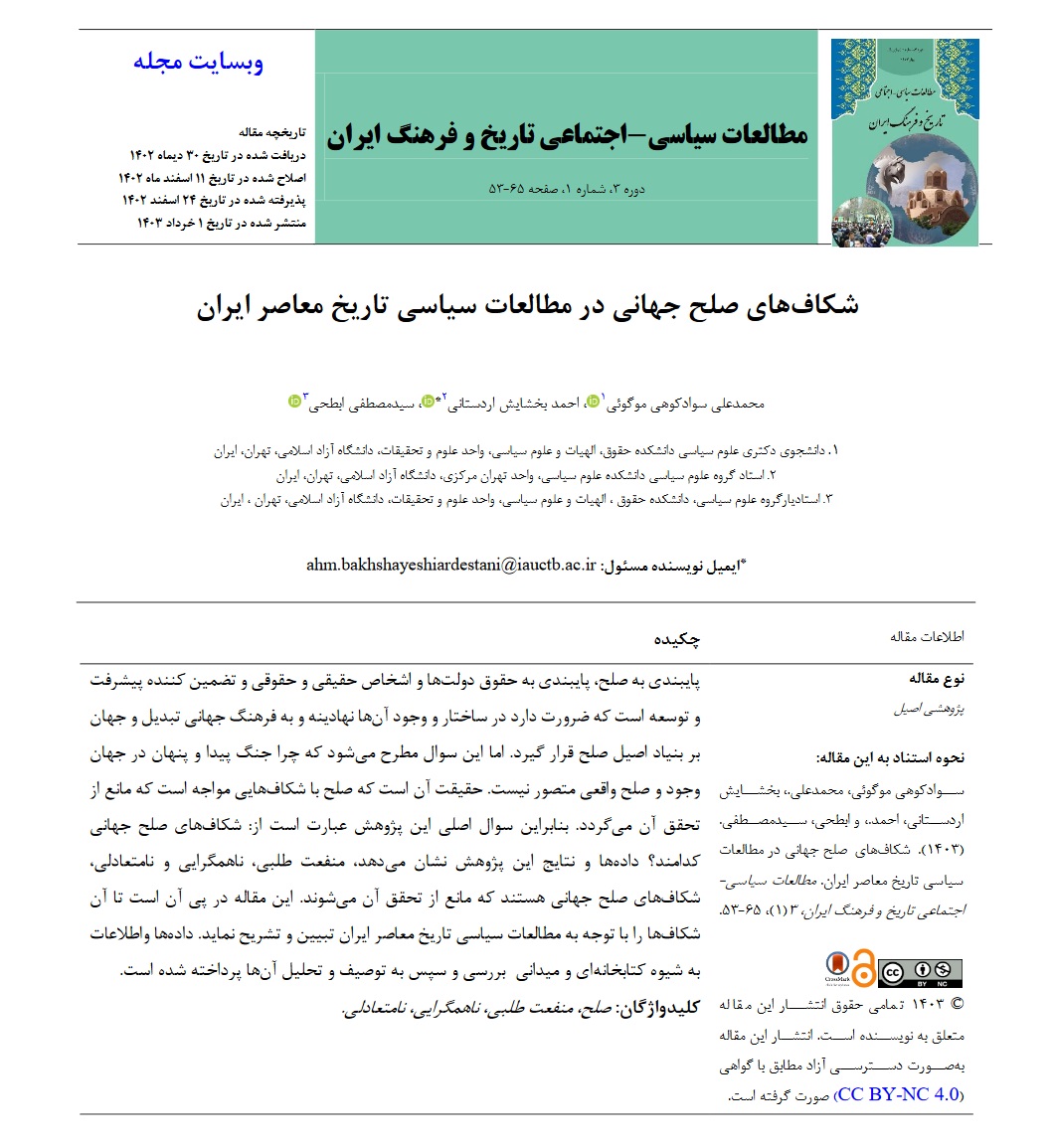شکاف های صلح جهانی در مطالعات سیاسی تاریخ معاصر ایران
کلمات کلیدی:
صلح, منفعت طلبی, ناهمگرایی و نامتعادلیچکیده
پایبندی به صلح، پایبندی به حقوق دولتها و اشخاص حقیقی و حقوقی و تضمین کننده پیشرفت و توسعه است که ضرورت دارد در ساختار و وجودآنها نهادینه و به فرهنگ جهانی تبدیل و جهان بر بنیاد اصیل صلح قرار گیرد. اما این سوال مطرح می شود که چرا جنگ پیدا و پنهان در جهان وجود و صلح واقعی متصور نیست. حقیقت آن است که صلح با شکاف هایی مواجه است که مانع از تحقق آن می گردد. بنابراین سوال اصلی این پژوهش عبارت است از : شکاف های صلح جهانی کدامند؟ داده ها و نتایج این پژوهش نشان می دهد، منفعت طلبی ، ناهمگرایی و نامتعادلی ، شکاف های صلح جهانی هستند که مانع از تحقق آن می شوند. این مقاله در پی آن است تا آن شکاف ها را با توجه به مطالعات سیاسی تاریخ معاصر ایران تبیین و تشریح نماید. دادهها واطلاعات به شیوه کتابخانهای و میدانی بررسی و سپس به توصیف و تحلیل آنها پرداخته شده است.
دانلودها








